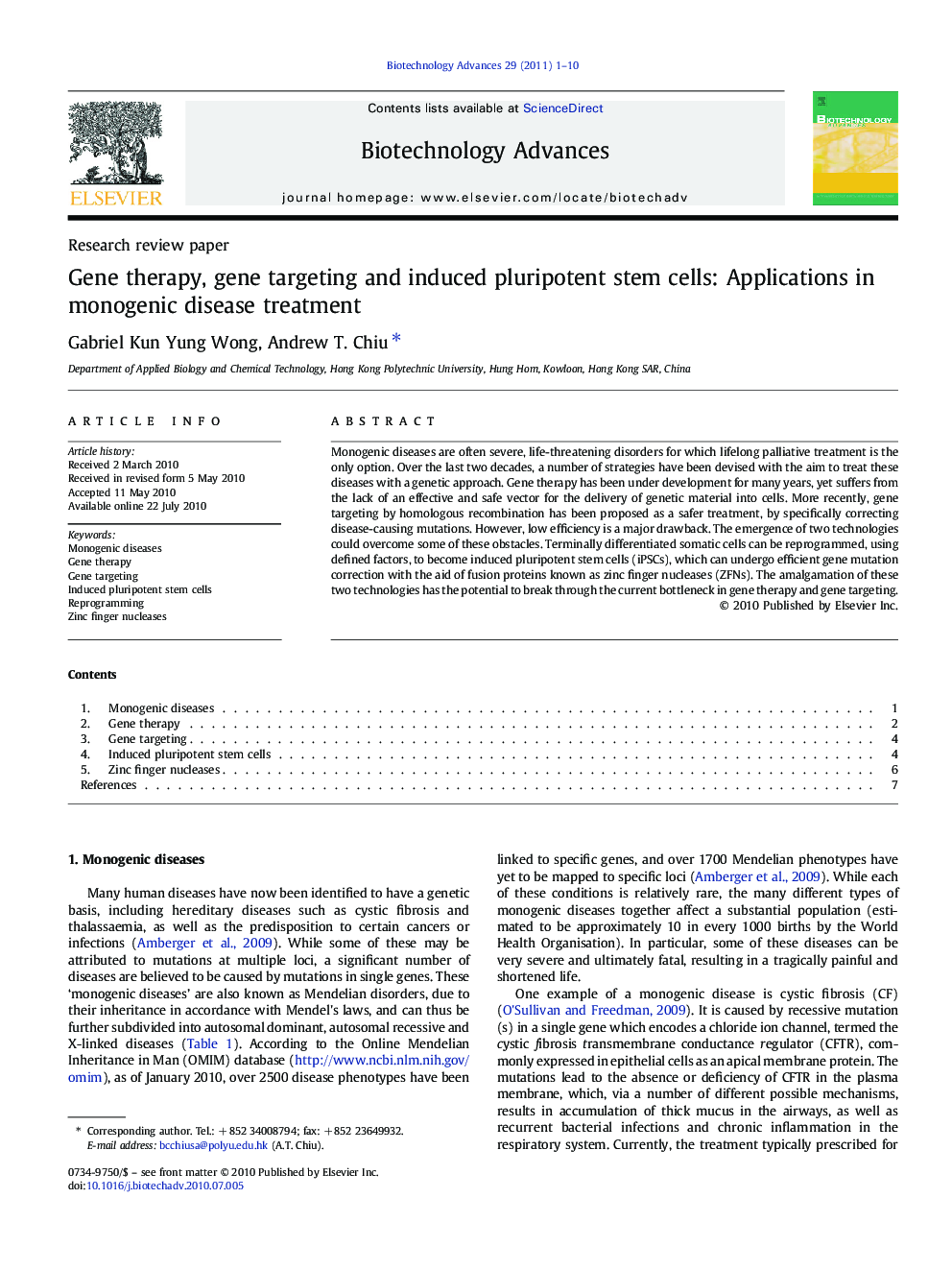| Article ID | Journal | Published Year | Pages | File Type |
|---|---|---|---|---|
| 14360 | Biotechnology Advances | 2011 | 10 Pages |
Monogenic diseases are often severe, life-threatening disorders for which lifelong palliative treatment is the only option. Over the last two decades, a number of strategies have been devised with the aim to treat these diseases with a genetic approach. Gene therapy has been under development for many years, yet suffers from the lack of an effective and safe vector for the delivery of genetic material into cells. More recently, gene targeting by homologous recombination has been proposed as a safer treatment, by specifically correcting disease-causing mutations. However, low efficiency is a major drawback. The emergence of two technologies could overcome some of these obstacles. Terminally differentiated somatic cells can be reprogrammed, using defined factors, to become induced pluripotent stem cells (iPSCs), which can undergo efficient gene mutation correction with the aid of fusion proteins known as zinc finger nucleases (ZFNs). The amalgamation of these two technologies has the potential to break through the current bottleneck in gene therapy and gene targeting.
